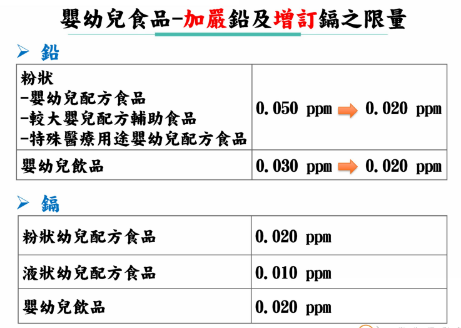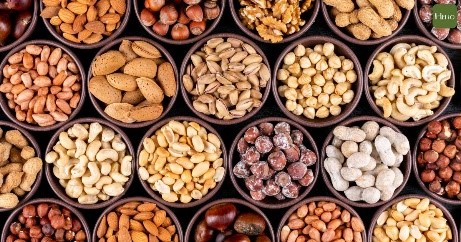Infants and young children are particularly vulnerable to the hazards of heavy metal exposure. To ensure their health, the Ministry of Health has enhanced regulations on heavy metal contaminants in food. On March 28, 113, the draft amendment to the "Hygiene Standards for Contaminants and Toxins in Food" was announced, targeting infant foods, poultry and livestock offal, nuts, and oilseeds.
The Food and Drug Administration (FDA) explained today (26th) that the amendment to the "Hygiene Standards for Contaminants and Toxins in Food" will take effect on July 1, 113. Products on the market must comply with the new standards for maximum limits, rather than being determined by the date of manufacture.

Infant foods will have stricter limits on lead and new limits on cadmium. (Image provided by Heho Parenting)
This update specifically tightens the limits on lead for certain infant foods and introduces new limits on cadmium. Limits on lead for poultry and livestock offal products are also adjusted accordingly. Additionally, due to nuts and oilseeds being popular sources of polyunsaturated fatty acids in recent years, their limits for cadmium are newly specified to enhance management.
The FDA reminds food industry operators to fulfill their responsibilities under the Food Safety and Sanitation Management Act. Violations will result in confiscation and destruction of products by Article 52 of the Act. Operators failing to correct violations by the deadline specified in Article 48 of the Act may face fines ranging from over 30,000 to 3 million NT dollars.
Deputy Director Lin Chinfu of the FDA noted that while chocolate was initially included in this round of tightened regulations, expert recommendations during the public consultation period indicated that the Codex Alimentarius Commission has already proposed new standards specifically for chocolate, which are more comprehensive. Thus, the FDA will revise the heavy metal limits for chocolate accordingly, with a new announcement expected as early as January next year.







